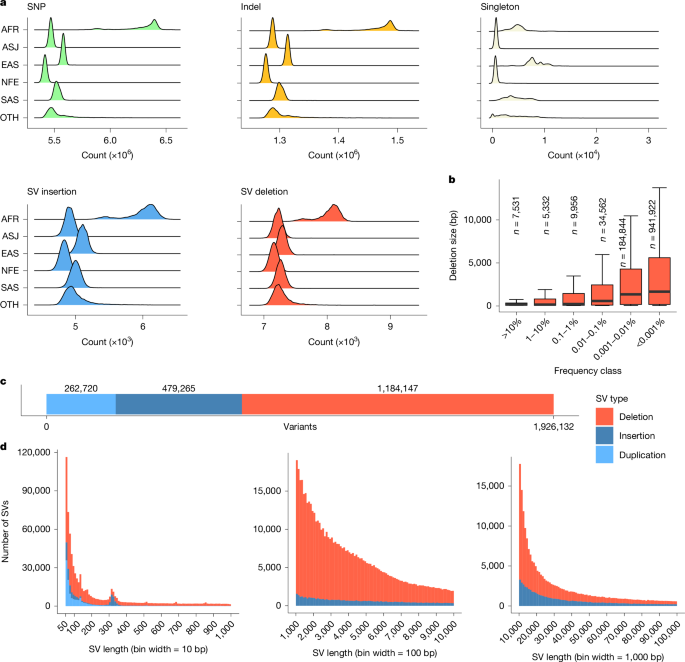Whole-genome sequencing provides an unbiased and complete view of the human
genome and enables the discovery of genetic variation without the technical limitations of other genotyping technologies. Here we report on whole-genome sequencing of 490,640 UK Biobank participants, building on previous genotyping effort1. This advance deepens our understanding of how genetics associates with disease biology and further enhances the value of this open resource for the study of human biology and health. Coupling this dataset with rich phenotypic data, we
surveyed within- and cross-ancestry genomic associations and identified novel genetic and clinical insights. Although most associations with disease traits were primarily observed in individuals of European ancestries, strong or novel signals were also identified in individuals of African and Asian ancestries. With the improved ability to accurately genotype structural variants and exonic variation in both
coding and UTR sequences, we strengthened and revealed novel insights relative to whole-exome sequencing2,3 analyses. This dataset, representing a large collection of whole-genome sequencing data that is available to the UK Biobank research
community, will enable advances of our understanding of the human genome, facilitate the discovery of diagnostics and therapeutics with higher efficacy and improved safety profile, and enable precision medicine strategies with the potential to improve global health.

 www.nature.com
www.nature.com
genome and enables the discovery of genetic variation without the technical limitations of other genotyping technologies. Here we report on whole-genome sequencing of 490,640 UK Biobank participants, building on previous genotyping effort1. This advance deepens our understanding of how genetics associates with disease biology and further enhances the value of this open resource for the study of human biology and health. Coupling this dataset with rich phenotypic data, we
surveyed within- and cross-ancestry genomic associations and identified novel genetic and clinical insights. Although most associations with disease traits were primarily observed in individuals of European ancestries, strong or novel signals were also identified in individuals of African and Asian ancestries. With the improved ability to accurately genotype structural variants and exonic variation in both
coding and UTR sequences, we strengthened and revealed novel insights relative to whole-exome sequencing2,3 analyses. This dataset, representing a large collection of whole-genome sequencing data that is available to the UK Biobank research
community, will enable advances of our understanding of the human genome, facilitate the discovery of diagnostics and therapeutics with higher efficacy and improved safety profile, and enable precision medicine strategies with the potential to improve global health.

Whole-genome sequencing of 490,640 UK Biobank participants - Nature
A study reports whole-genome sequences for 490,640 participants from the UK Biobank and combines these data with phenotypic data to provide new insights into the relationship between human variation and sequence variation.
